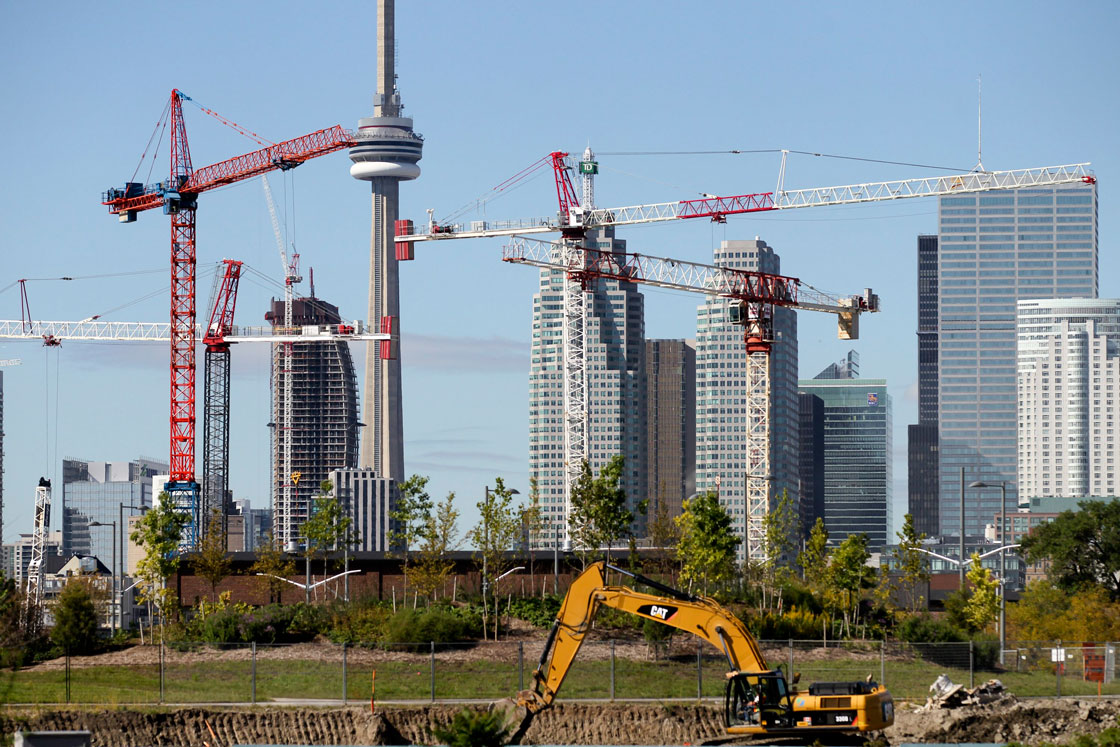Since introducing my Bill 20 to set Toronto free from the OMB last March, a number of ministers have repeatedly and incorrectly claimed their government has already set Toronto free.

For example, when my colleague Cheri DiNovo recently asked about the OMB’s decision to amend Toronto’s Official Plan and allow a large development near High Park, Minister Linda Jeffrey replied, “I would like to remind the member that the city of Toronto already has the authority to establish local appeals boards under the Planning Act.”
Is this true? Not exactly.
Section 115 of the City of Toronto Act does allow the city to set up an appeals body, but only for minor variances heard by the Committee of Adjustment, such as a fence dispute. The local appeals body cannot hear anything big like an appeal of the Official Plan or a rezoning application, such as the appeal Cheri was talking about.
But Minister Jeffrey is not alone. During the Bill 20 debate in March, Minister Yasir Naqvi said my bill was unnecessary since a local appeals body provision “already exists in the Planning Act.”
During that same debate, Minister David Zimmer even claimed that “the City of Toronto does not have an official plan.” Of course, Toronto does indeed have an Official Plan, which is why developers frequently ask the OMB to change it.
To be clear: my Bill 20 completely frees Toronto from the OMB. The OMB would no longer hear any appeals about any issues within the boundaries of the City of Toronto. The City would be able to replace the OMB with its own appeals body if it chooses, or leave planning appeals to the courts.
For more information about Bill 20 and why it is needed for Toronto and all Ontario municipalities, please click here, here and here.
When it comes to the OMB, this government will first claim there is no problem, and then claim it has found the solution. Inevitably, nothing changes. That’s why we should be wary of renewed government promises of OMB reform.
For example, last year Minister Charles Sousa promised the City of Mississauga that he would rein in the OMB “in months, not years.” Still waiting.
The year before, Minister Naqvi promised significant OMB reforms if he was reelected. He was reelected, but we’re still waiting.
In 2007, the government enacted Bill 51, which forces the OMB to “have regard to” municipal decisions. Despite being touted as a breakthrough for local democracy, a court later ruled that this provision meant next to nothing. Turns out, the OMB owes only “minimal deference” to municipalities.
And in 2003, this government was elected on a platform promising OMB reforms that would “prevent developers from forcing unwanted municipal expansion.” Yet ten years later, in perhaps its worst decision to date, the OMB allowed a developer to build a sprawling development in Waterloo Region more than ten times bigger than allowed under the region’s growth plan. The OMB not only forced unwanted municipal expansion but effectively overturned the province’s own Places to Grow Act.
Ten years of empty promises. Why can’t this government quit the OMB?
It’s not as if Ontario needs the OMB. In fact, Ontario is pretty much the only place anywhere that has anything like the OMB.
While many jurisdictions do have appeals bodies, only Ontario grants an unelected tribunal such broad policy-making powers over land use and planning. This is what makes the OMB so different.
Unlike planning appeals bodies elsewhere, empowered to uphold the rules, the OMB literally has the power to make up its own rules, arbitrarily and inconsistently.
I have described it as a “fourth branch of government,” unelected and accountable to no one.
Well, almost no one. In unguarded moments, OMB officials will admit to serving one particular master: as former OMB chair Marie Hubbard told my colleague Michael Prue, “My mandate is to facilitate the development industry in the province.”
And there it is.
To be sure, the construction and development industries are vital to Ontario’s economy. In addition, Ontario’s population is expected to grow by almost four million over the next 24 years, and those people will homes to live in, offices to work in and stores to shop in.
But these industries also represent, by far, the largest source of political campaign donations in Ontario, and over 97 per cent of those donations go to the Liberals and the Progressive Conservative Party.
Could this be why the Liberal government continues to tolerate this anachronistic holdover from the 19th century? In the 116 years since the OMB was created to oversee railroad expropriations in Ontario, it has been easier for Canada to amend its constitution than for Ontario to rid itself of this undemocratic oddity.
Toronto is 179 years old. It was here before there was a Canada, and was definitely here before there was an OMB. It has the largest planning staff in Canada, and is more than capable of managing its own affairs.
It’s time to set Toronto free from the undemocratic and unaccountable OMB.
This article is not written by Global News. The author is solely responsible for the content.



Comments